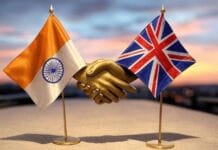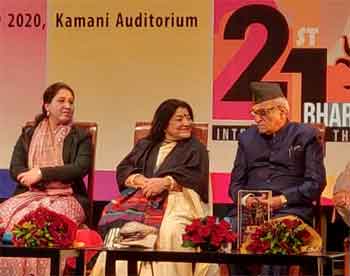London, November 2, 2025 — Britain’s Political Divide Reaches a Breaking Point
A fiery on-air debate between GB News presenters Ben Leo and Matthew Stadlen has reignited public concern over whether the United Kingdom is sliding toward internal conflict. The heated exchange, which quickly went viral on social media, underscored the deepening divisions across British society over migration, national identity, and the direction of government under Prime Minister Rishi Sunak’s administration.
The argument began during a segment on the network’s “Real Britain Tonight,” where both hosts discussed the rise of far-right groups, ongoing anti-immigration protests, and a recent Parliament brawl involving MPs from opposing parties.
🎙️ “We’re on the Edge of Something Dangerous,” Warns Ben Leo
Ben Leo, a conservative commentator and longtime GB News anchor, opened the debate with a stark warning:
“The UK is fracturing from within. You can feel it — the protests, the riots, the silence from Westminster. We’re on the edge of something dangerous if this continues unchecked.”
Leo argued that mass migration, economic stagnation, and the erosion of “traditional British values” are fueling discontent across working-class regions.
He cited recent polling showing that nearly 40% of Britons believe civil unrest is inevitable in the next five years if “current policies continue.”
🗣️ Matthew Stadlen Pushes Back: “This Is Fearmongering, Not Journalism”
Matthew Stadlen, known for his liberal commentary, immediately countered Leo’s statements, accusing right-wing media of “fanning the flames of division.”
“There’s no civil war coming — what we’re seeing is democracy in action. People are angry, yes, but that’s because they feel ignored, not because they want violence,” Stadlen said.
He added that far-right rhetoric and misinformation campaigns online have played a major role in escalating tensions.
The exchange grew increasingly personal, with both hosts interrupting each other before producers cut to a commercial break.
💥 A Reflection of the UK’s Polarized Mood
Political analysts say the on-air confrontation reflects a broader crisis of trust in British institutions.
With ongoing public sector strikes, economic inequality, and immigration tensions, the United Kingdom faces one of its most volatile periods since Brexit.
Dr. Hannah Crewe, a sociologist at the University of Leeds, noted:
“What we’re seeing isn’t an imminent civil war — it’s a social fragmentation. When the media mirrors the polarization, it amplifies it.”
The debate has reignited discourse around press responsibility, with critics accusing GB News of “turning outrage into ratings” while others praised it for “airing uncomfortable truths.”
🇬🇧 Civil War Fears Trending on X (formerly Twitter)
Following the broadcast, hashtags like #UKCivilWar, #GBNewsDebate, and #BenLeo trended on X (formerly Twitter).
Clips of the shouting match have racked up over 8 million views within 24 hours, with users split between those calling Leo “a patriot” and others branding the segment “reckless fearmongering.”
One viral post read:
“GB News just gave us a glimpse of Britain’s future — shouting instead of listening.”
🏛️ Government Response: “Unity Must Prevail”
Downing Street issued a brief statement later Sunday evening, urging “responsible dialogue” amid the rising political heat.
“While Britain faces challenges, talk of civil conflict is not only false but dangerous. Unity, respect, and reform must guide our path forward,” the statement read.
Labour Party leader Keir Starmer echoed the sentiment, warning that “the politics of rage” was becoming the new normal, and that “leaders must not exploit division for votes.”
🌍 Global Watch: UK’s Image at Stake
International observers from the European Union and United Nations Human Rights Council have also expressed concern about Britain’s internal polarization.
Editorials in The Guardian, BBC, and The Times call this latest GB News controversy “a symbol of Britain’s identity crisis” — where politics, media, and populism collide.
“Britain’s struggle is no longer about left vs. right — it’s about chaos vs. cohesion,” one Financial Times op-ed observed.
















